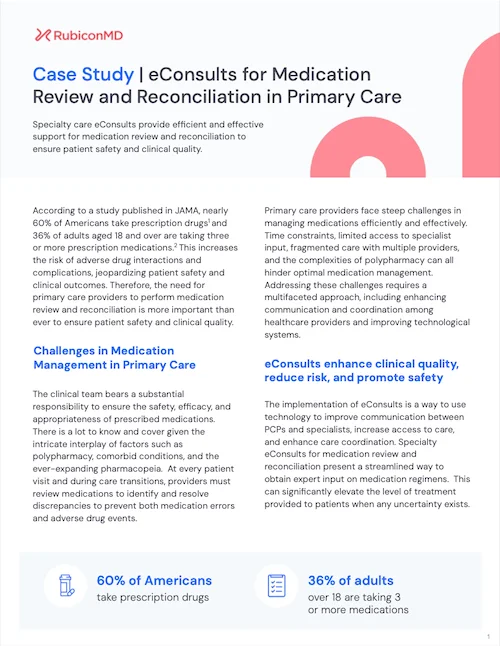eConsults Reduce Specialty Care Fragmentation for Medicare and Medicaid Patients
Primary care providers managing Medicare and Medicaid populations routinely care for patients with multiple chronic conditions, limited access to specialists,…
“It’s those who are most dedicated to their work who are at the greatest risk to be most consumed by it.” –Tait Shanafelt, MD
The last couple of years have tested our ability to cope with stress. Most people have been faced with some burden, ranging from supporting our children when they could not go to school, being unable to socialize in-person, or having lost a loved one and possibly not being able to say goodbye. In addition, as health care workers (HCW), we have been on the frontlines, being exposed to the virus ourselves while supporting those who have struggled the most due to illness, natural disasters, or violence. Thus, it is not surprising there are unprecedented rates of HCW reporting some degree of job dissatisfaction and mental health problems.
There is a broad range of ways we manifest such pressure and job dissatisfaction. One of the largest studies assessing the prevalence of burnout and mental health problems conducted among US HCW during the pandemic reported that 49% of respondents were experiencing burnout and 38% were experiencing anxiety or depression.1 A recent report estimates that up to one physician may die by suicide every day in the United States, being one of the professions with the greatest risk.2 Thus, it is a critical call to action that we put our needs front and center, so we can continue to take care of those who need us.
Personality traits common to HCW (e.g. sense of responsibility, high expectations, ability to delay gratification) may result in putting aside our own needs while taking care of others. In addition, there is still a meaningful amount of stigma against seeking our own mental health treatment, in some cases due to fear of it impacting licensing, or being perceived as ineffective by peers. There are many ways for us to confidentially seek the help we need.
We all experience these types of mental health problems in ourselves, our families or with colleagues. The pandemic is further testing the need for us to take care of ourselves and each other, probably unlike any previous moment in history. The signs that we need help will be varied. For some of us, it may be non-specific complaints such as irritability or dread going to work. For others, it will be substance use problems, weight gain or loss, anxiety, depression or suicidal ideation, which requires more swift interventions. What is common to all of these cases is that we too have crucial needs that should not be overlooked, not just our patients. Learning to tune in to your own warning signs and stepping up to your own self care should be a top priority at this moment in time.
What concrete actions can you take today? Block time on your calendar for self-care activities and honor that time as a top priority. If overwhelmed, have a discussion with your supervisor on what could be taken off of your plate. If possible, advocate for a healthier work-life balance, create spaces for self-care and facilitate the same for your peers and those who report to you. Explore resources available to you from your organization. Many organizations have mechanisms for internal referrals to a mental healthcare provider and self-care activities.
To act is often the most challenging part. It’s one more thing we have to take on, but self-care for healthcare workers is urgent for so many of us right now. We want to thank you for your service in these difficult times. We appreciate that you have continued to provide medical care to people, while dealing with higher levels of stress and perhaps your own mental health struggles. This can be tough when we are used to putting others first, but the time to advocate for yourself is now.
You are not alone. If you need support, please get the help you need so you may continue to help so many others.
Resources:
References:
2. Harvey, S., et al. Mental illness and suicide among physicians. Lancet. 2021 Sep 4;398(10303):920-930. doi: 10.1016/S0140-6736(21)01596-8. Reese, S.
Primary care providers managing Medicare and Medicaid populations routinely care for patients with multiple chronic conditions, limited access to specialists,…
In a recent RubiconMD CME webinar, “Trauma-Informed Primary Care: ACEs, PTSD, and Chronic Stress,” Ludwing Salamanca, MD, PhD of Columbia…
As primary care providers and health systems transition from traditional fee-for-service models to value-based care (VBC), eConsults are a scalable,…

Explore real examples of specialty care eConsults providing efficient and effective support for medication review and reconciliation.